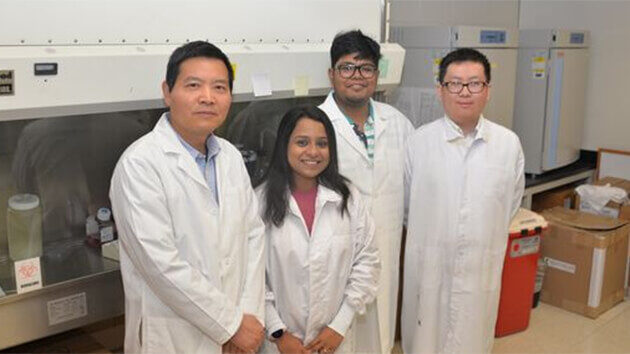$3M NIH Grant Supports Albany Medical Center Research on Vaccine for Plague

Albany Medical Center scientists have been awarded a $3 million, five-year grant from the National Institutes of Health’s (NIH) National Institute of Allergy and Infectious Diseases to develop a vaccine that could protect against plague.
A highly contagious disease caused by the bacteria Yersinia pestis (Y. pestis), plague has killed millions of people throughout history. Bubonic plague is the most common naturally occurring form of the three main types of plague, which also include pneumonic plague and septicemic plague. In the U.S., plague is most common in rural areas of the southwest, particularly New Mexico, Arizona and Colorado.
For the most part, plague today is treated with antibiotics; there is no vaccine currently available that provides long-term defense against it.
“While plague in humans is relatively rare, we’ve begun to see strains that are resistant to antibiotics and there are concerns it could be used as a bioweapon,” explained Wei Sun, PhD, associate professor in the Department of Immunology and Microbial Disease at Albany Medical College, who is leading the study.
Dr. Sun and his team will attempt to modify another, less-lethal bacteria in the Yersinia family – Y. pseudotuberculosis (Yptb) – into a carrier for protective antigens against Y. pestis. After testing the protective immunity of this strain in animal models, they’ll work to decipher the mechanisms of the immune protection it induces
“Our hope is that this project provides the fundamentals for the development of a highly effective and safe vaccine that can protect against current and future strains of plague,” said Dr. Sun.